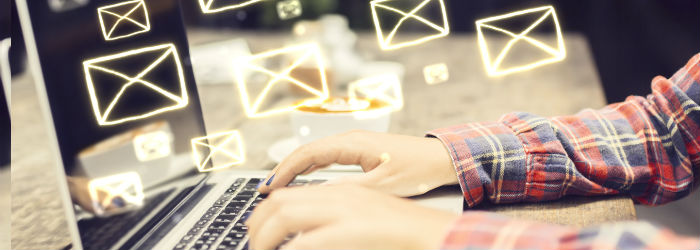How to write effective emails

An unprecedented amount of emails are being exchanged throughout the world every day. Jocelyn K. Glei, author of Unsubscribe, explains why it is more important than ever to write effective emails to grab your recipients’ attention.
If writing a letter a hundred years ago was the equivalent of sitting down with someone in a quiet room and talking face-to-face, writing an email today is like yelling at someone across a noisy traffic intersection while they’re rushing to an appointment.
Everyone is overloaded and overbusy. We exist in a state of continuous partial attention as we shift nimbly back and forth between myriad forms of communication — email, text, instant message, social media and the web. That means your email isn’t just competing with other email for someone’s attention; it’s competing with everything.
We’re also reviewing our email on our mobile phones with increasing frequency. On average more than 50 per cent of emails are checked for the first time on a phone. During that time we skim and trim our inboxes, responding to urgent items on the go and flagging less pressing items to be revisited when we’re back at our desks.
That means your email will most likely be digested in a quick glance while the receiver is on their phone, flitting back and forth between other tasks. At best your correspondence will get a quick flash of their attention. If it’s deemed compelling based on that passing glance, they will probably return to it later. But if you make a poor first impression, it’s game over before you even get started.
One of the most important aspects of emailing is considering your audience . . .
We typically write emails in a bubble. We compose alone and without feedback. This can make it feel like a private, personal act when in fact it’s not about you at all. It’s about the two of you. Every email is a conversation, a social interaction that requires politeness, sensitivity, finesse and kindness.
Which is why your most important task before composing an email is to consider your audience. Are you writing to your boss? To an important person you don’t know? To a client or customer who might be upset? To a coworker who’s on the verge of burnout? Each of these scenarios demand different writing strategies and tones. Rather than focusing on what you need, put yourself in their shoes: How busy are they? What information do they need? What would put them at ease?
If this sounds like a lot of work for a little old email, think about it this way: if you take the time to consider your audience and their needs now, your emails will be more effective, you will be more likely to get what you want, you will have fewer fires to put out, and you will ultimately have to spend less time on email.
The average person checks email 77 times a day, sends and receives more than 122 email messages a day and spends nearly a third of their workweek managing a constant influx of email. Even when we're away from work, checking email is the most popular activity we engage in on our mobile devices. Email is a powerful and essential tool - but it has become a near-constant source of frustration, anxiety and distraction from our work.
In this insightful and intensely practical book, Jocelyn K. Glei explains why email is so overwhelming and addicting, and lays out strategies for limiting the energy you spend on it. These include setting meaningful work goals, clarifying to yourself which people and messages truly matter and creating a daily routine that aligns with your natural creative rhythms.
Through her actionable, thoughtful advice, Glei will help you to:
- Stop letting email dictate your mood, your focus and your to-do list
- Process your inbox efficiently
- Compose messages that get people to take action
- Establish boundaries that allow you to engage in more meaningful work.








